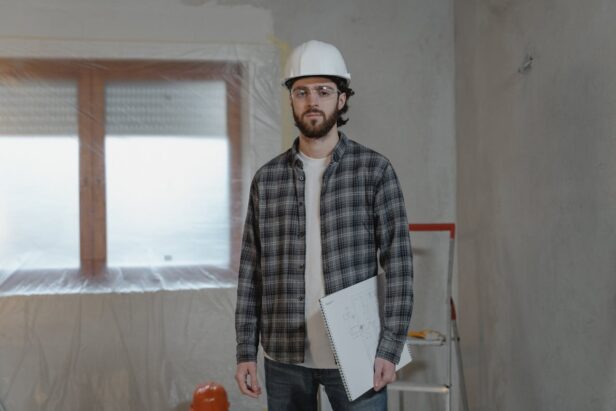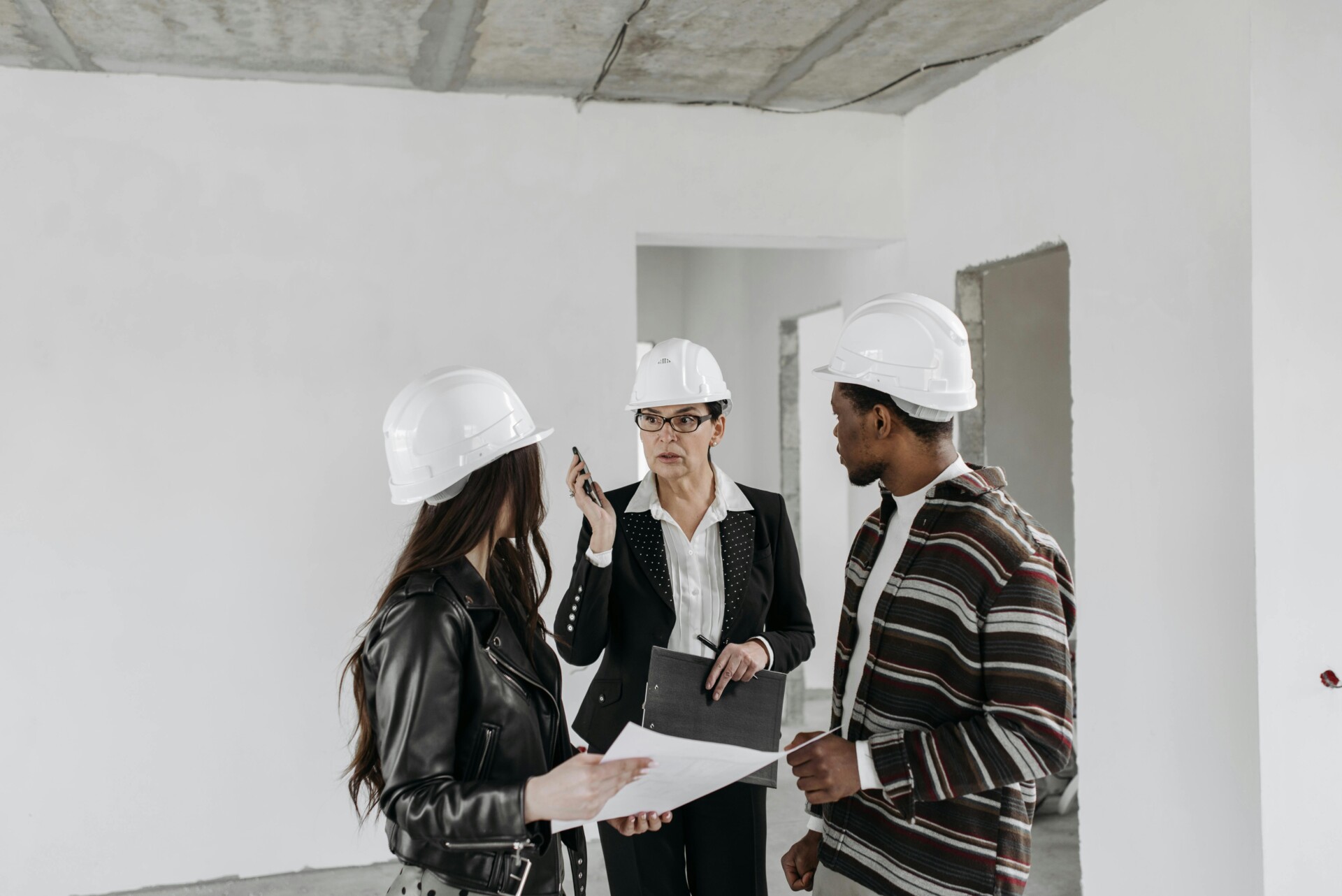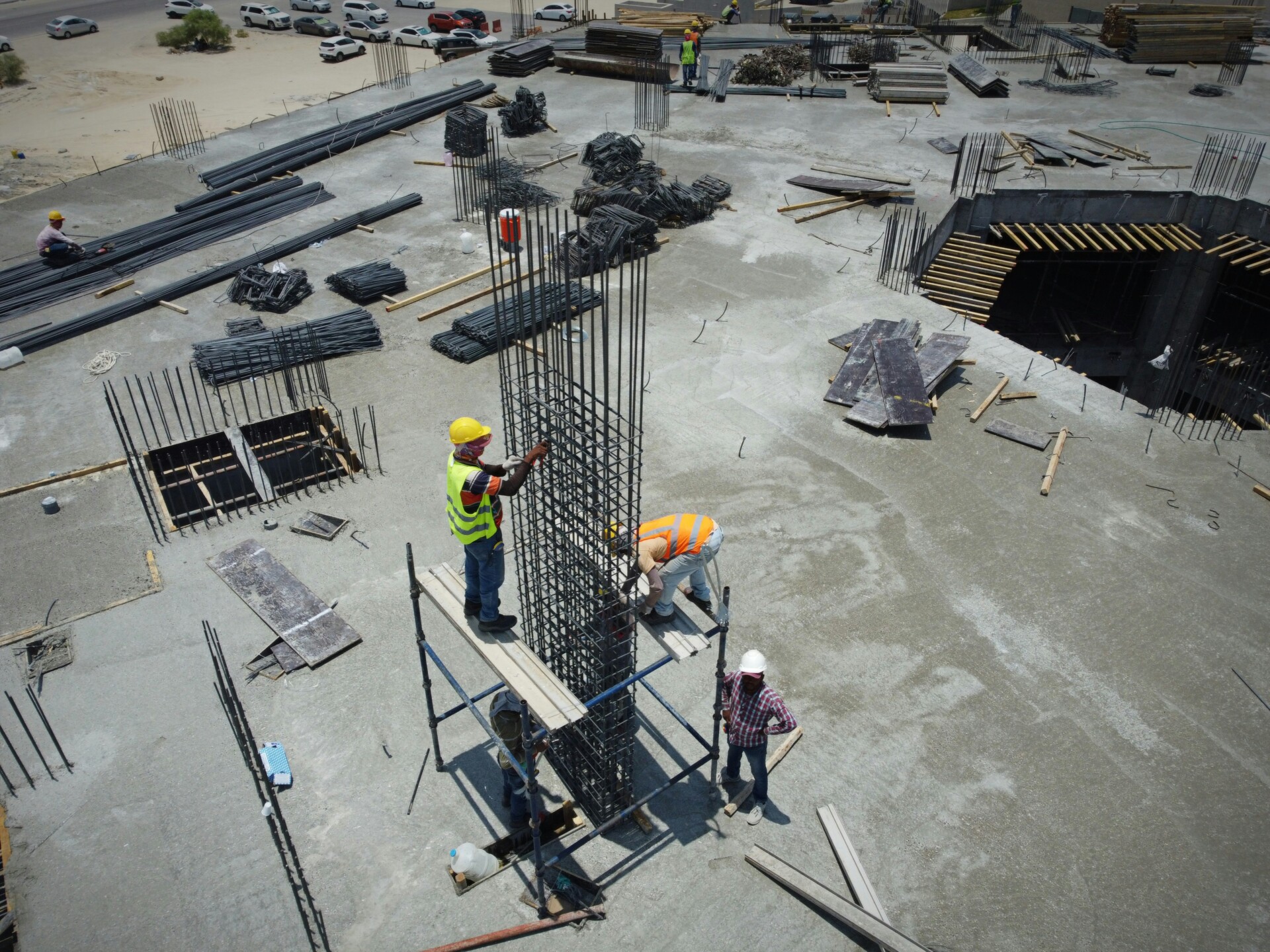Industrial building contractors near me typically specialize in commercial construction for manufacturing facilities, warehouses, and tenant improvements. These commercial general contractors manage complex industrial building renovation projects from initial planning through final delivery.
We coordinate specialized teams across procurement, permitting, and construction phases while maintaining transparent communication throughout the process. Our approach ensures manufacturing facility builds stay on schedule and meet the operational requirements developers and property owners need.
What Do Local Industrial Building Contractors Handle?
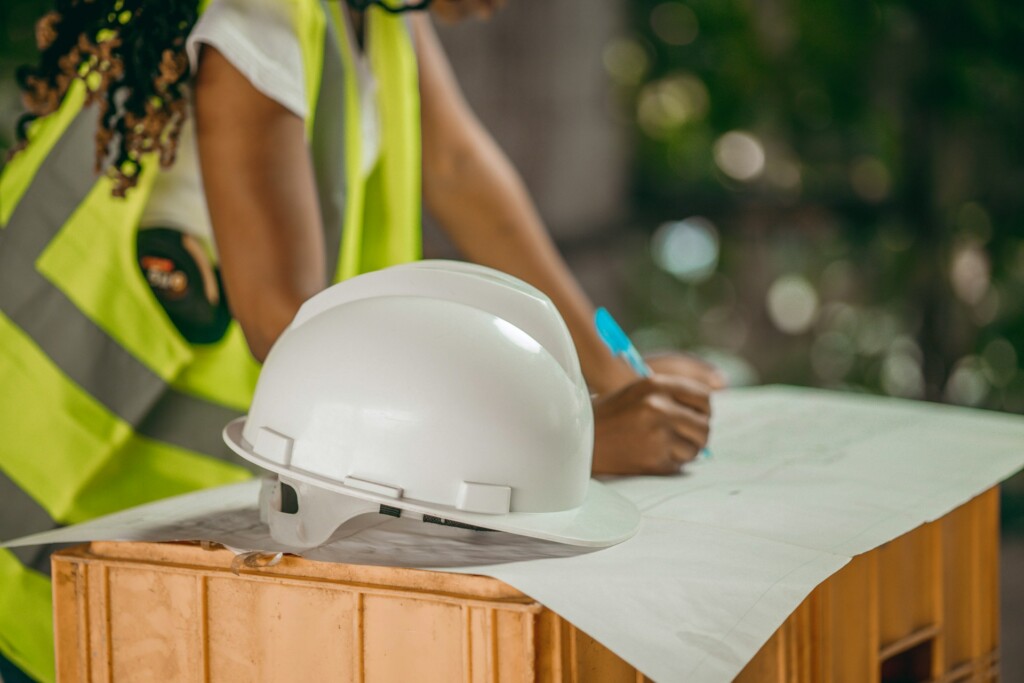
Commercial contractors coordinate construction teams and project resources to minimize disruptions and keep industrial projects moving forward. We work across multiple construction phases to deliver manufacturing facilities, warehouses, and industrial renovations on schedule and within budget.
Core Service Areas
Our preconstruction services establish the foundation for successful industrial projects. We conduct site assessments, develop cost estimates, and coordinate design teams to identify potential challenges before construction begins. This phase includes engineering reviews, permitting strategies, and constructability analysis.
During construction, we manage trade coordination, quality control, and safety protocols. Our teams oversee structural work, mechanical systems installation, and facility finishes while maintaining clear communication with all stakeholders. Post-construction services include final inspections, system commissioning, and warranty support.
Procurement and Supply Chain Management
We handle material sourcing and procurement to secure industrial-grade components at competitive pricing. Our procurement teams track long-lead items like specialized equipment and mechanical systems to prevent schedule delays. This includes managing supplier relationships and ensuring materials meet project specifications.
Permitting coordination involves preparing and submitting documentation to local jurisdictions. We work with building departments, fire marshals, and other regulatory bodies to secure necessary approvals. Our experience with industrial building codes helps streamline this process.
Technology Integration and Project Transparency
Construction technology enables us to provide real-time project updates and maintain budget transparency throughout the build process. We use project management platforms to share schedule progress, cost tracking, and milestone achievements with property owners and developers.
Some contractors offer site selection support, helping evaluate potential locations based on zoning requirements, utility access, and transportation logistics. This service proves valuable for developers planning new industrial facilities or companies considering relocation.
Our project teams include experienced superintendents who coordinate daily operations, manage subcontractor schedules, and ensure work quality meets industrial standards. We maintain relationships with qualified specialty trades to support complex mechanical, electrical, and structural requirements typical in industrial construction.
How Should I Evaluate Industrial Building Contractors Near Me?
Contractor selection requires systematic evaluation across multiple criteria that directly impact project success. We recommend focusing on fundamental qualifications first, then assessing how well each candidate aligns with your specific project requirements. The evaluation process should examine both technical capabilities and operational characteristics that influence day-to-day project execution.
Experience And Expertise Assessment
Look for contractors with demonstrated experience in projects similar to yours in size, complexity, and industry type. Review their portfolio to understand their capabilities with manufacturing facilities, warehouse construction, or specialized industrial spaces. Ask for case studies that show how they handled challenges specific to your sector.
Verify that their project managers and superintendents have relevant industrial construction backgrounds. These individuals will coordinate your daily operations, so their experience directly affects project quality and timeline adherence. Request information about their team’s certifications and continuing education in industrial construction methods.
Communication Standards And Project Management
Effective communication prevents costly delays and misunderstandings throughout construction. Evaluate how quickly contractors respond to initial inquiries and the clarity of their proposals. Strong candidates provide detailed project breakdowns and explain their approach to managing timelines and budgets.
Assess their project management systems and reporting protocols. We look for contractors who use construction technology to provide real-time updates on progress, budget tracking, and schedule adherence. Their communication style should match your organization’s needs for regular updates and decision-making processes.
Transparency In Pricing And Scheduling
Request detailed cost breakdowns that separate labor, materials, equipment, and overhead expenses. Transparent contractors explain how they handle change orders, potential cost overruns, and schedule adjustments. They should provide clear timelines with milestone markers and explain how they manage dependencies between different construction phases.
Examine their track record for completing projects on time and within budget. Ask about their approach to managing supply chain challenges and how they communicate when adjustments become necessary. Contractors with strong transparency practices maintain detailed documentation throughout the project lifecycle.
Safety Record And Subcontractor Relationships
Review safety statistics including incident rates, OSHA citations, and safety training programs. Industrial construction involves significant safety risks, so contractors must demonstrate comprehensive safety protocols and consistent enforcement. Request their Emergency Action Plans and site safety management procedures.
Evaluate the quality and reliability of their subcontractor relationships. Strong general contractors maintain partnerships with specialized trades who understand industrial construction requirements. Ask about their subcontractor vetting process and how they ensure consistent workmanship quality across all project phases.
Problem-Solving Capabilities And Cultural Fit
Industrial projects often require creative solutions for unique challenges. Assess how contractors approach problem-solving by asking about specific situations they’ve encountered. Look for evidence of flexibility in adapting to changing requirements while maintaining project objectives.
Consider cultural fit between the contractor’s working style and your organization’s approach to decision-making and project management. Strong ethics and professional integrity should be evident in their references and business practices. Contractors who align with your values typically produce better long-term working relationships and project outcomes.
What Does The Industrial Construction Process Include?
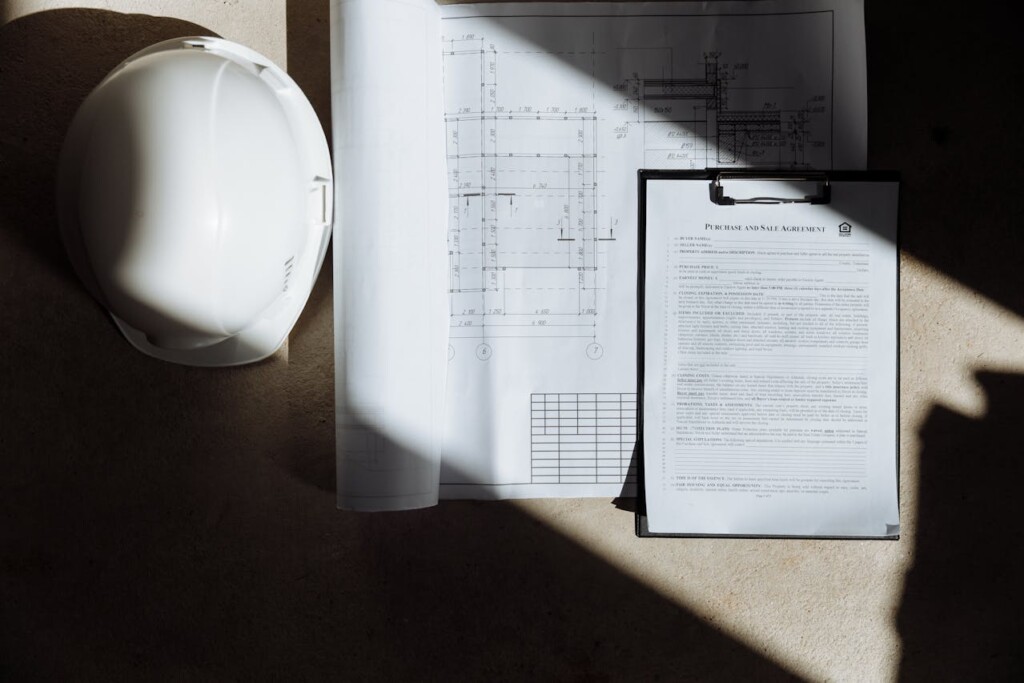
We coordinate industrial projects through five distinct phases that ensure systematic delivery from initial planning through final handover. Each phase builds on the previous work and maintains schedule momentum while addressing specific project requirements.
Preconstruction Planning
During preconstruction planning, we conduct comprehensive site assessments to identify existing conditions, utilities, and potential constraints. Our team develops detailed construction plans that address structural requirements, mechanical systems, and site logistics. Design coordination involves regular meetings between our project managers, architects, and engineers to resolve conflicts before construction begins.
Risk mitigation strategies focus on identifying potential delays, cost overruns, and safety concerns early in the process. We evaluate soil conditions, environmental factors, and local code requirements that could impact the build schedule. This phase typically includes value engineering reviews to optimize materials and methods while maintaining project specifications.
Procurement
We source materials, equipment, and subcontractors through established supply chain relationships that ensure competitive pricing and reliable delivery. Our procurement team tracks long-lead items such as specialized manufacturing equipment, electrical components, and custom architectural elements to prevent schedule delays.
Subcontractor selection involves evaluating capabilities, safety records, and previous performance on similar industrial projects. We coordinate delivery schedules with vendors to align material arrival with construction milestones. Supply chain management includes backup sourcing options for critical materials and equipment.
Permitting
Our team prepares and submits permit applications to local jurisdictions while ensuring all documentation meets current building codes and zoning requirements. We coordinate with municipal offices, fire departments, and utility companies to secure necessary approvals.
Code compliance verification involves reviewing plans against local, state, and federal regulations that govern industrial construction. We maintain regular communication with permitting offices to address questions and expedite approval processes.
Construction
The construction phase begins with demolition and site preparation work to establish proper foundations and access routes. Structural work proceeds according to engineered plans while we coordinate mechanical, electrical, and plumbing systems installation.
We manage vendor coordination for IT infrastructure, audio-visual systems, security equipment, and furniture installation to ensure these elements integrate properly with building systems. Quality control inspections occur at key milestones to verify work meets specifications and industry standards. Safety protocols remain in effect throughout construction to protect workers and maintain OSHA compliance.
Project Close Out
Final inspections involve our quality assurance team, local authorities, and client representatives to verify all systems function properly and meet design requirements. Client walkthroughs provide opportunities to address any remaining items before handover.
We complete project handover by providing operation manuals, warranty information, and maintenance schedules for building systems. Post-completion support includes addressing warranty items and providing ongoing maintenance guidance to facility management teams.
What Drives Cost And Schedule For Industrial Projects Near Me?
Multiple factors influence both construction cost and timeline for industrial projects. Location plays a central role, with urban markets typically commanding higher labor costs and permitting fees compared to suburban or rural areas. The scope of work and project size directly impact material quantities and labor hours required.
Design complexity and material selections significantly affect budgets. Standard industrial construction ranges from $100 to $500 per square foot depending on these variables. Basic warehouse facilities fall toward the lower end, while specialized manufacturing spaces with advanced systems approach the higher range.
Timeline choices create a direct cost relationship. Fast-track schedules demand additional resources and premium pricing for accelerated delivery. We often see rushed projects require overtime labor and expedited material shipments. Conversely, standard timelines allow for better budget management through strategic material ordering and optimized labor scheduling.
Supply chain volatility remains a critical cost driver. Long-lead items like specialized HVAC equipment or custom steel require early ordering to maintain project schedules. Material price fluctuations can impact budgets significantly, particularly for projects with extended timelines where commodity prices may shift.
Labor costs vary by trade and region. Skilled trades often command premium rates in markets with high construction activity. We coordinate with established subcontractor networks to secure competitive pricing while maintaining quality standards. Local permitting processes also influence schedules, with complex approvals potentially extending timelines and associated costs.
Conclusion And Next Steps
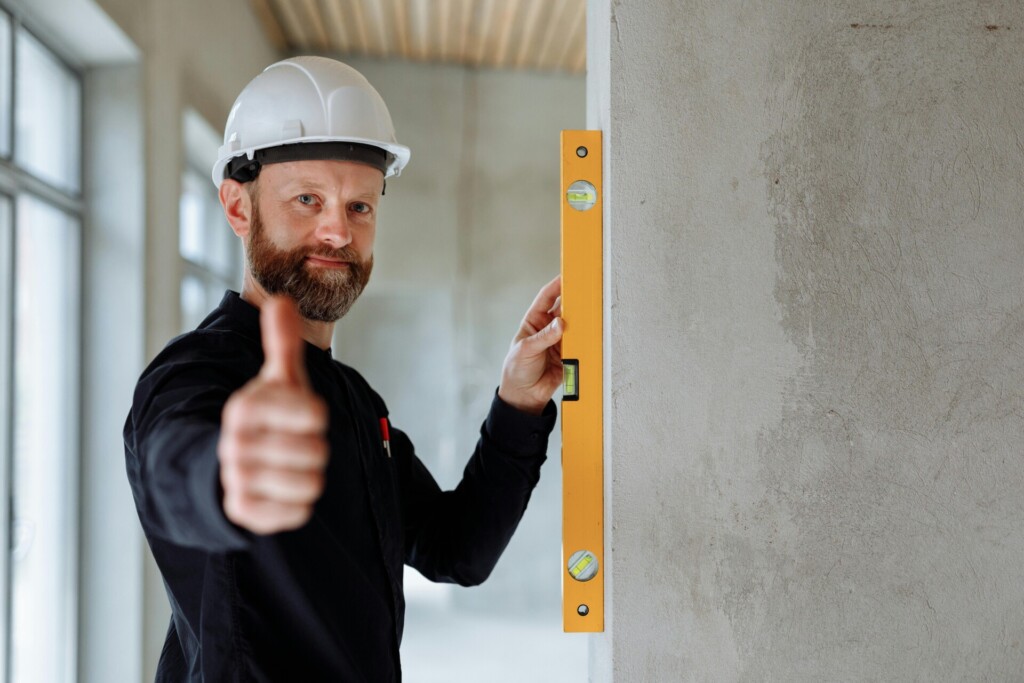
Finding the right industrial building contractors near me involves focusing on the fundamentals that drive project success. Prioritize contractors who demonstrate clear scope definition, proven experience with similar projects, transparent communication practices, and open budgeting processes. These core elements form the foundation of productive partnerships that deliver manufacturing facilities, warehouse spaces, and industrial renovations on schedule and within budget.
Map your specific requirements to the five project phases we coordinate: preconstruction planning, procurement, permitting, construction execution, and project close out. Request preliminary pricing and scheduling advice early in your evaluation process to understand how each contractor approaches cost control and timeline management. Verify their safety practices through documentation and references, and assess the depth of their subcontractor relationships. A strong contractor shortlist built on these criteria positions you to move confidently from planning to execution.
Contact EB3 Construction to discuss your industrial project needs and receive preliminary pricing and scheduling guidance.

